Taiwan has developed next-generation solar cell components that would boost solar-cell efficiency by more than 31 percent, Academia Sinica said yesterday.
Boosting solar-cell efficiency is key in developing solar energy in the nation, given the limited space available to install solar panels, the institute said in a statement.
Currently, the highest light-to-electricity conversion efficiency achieved by silicon solar cells is about 22 to 24 percent, the institute said, adding that it is nearly impossible to increase efficiency by 30 percent with silicon solar cells alone.
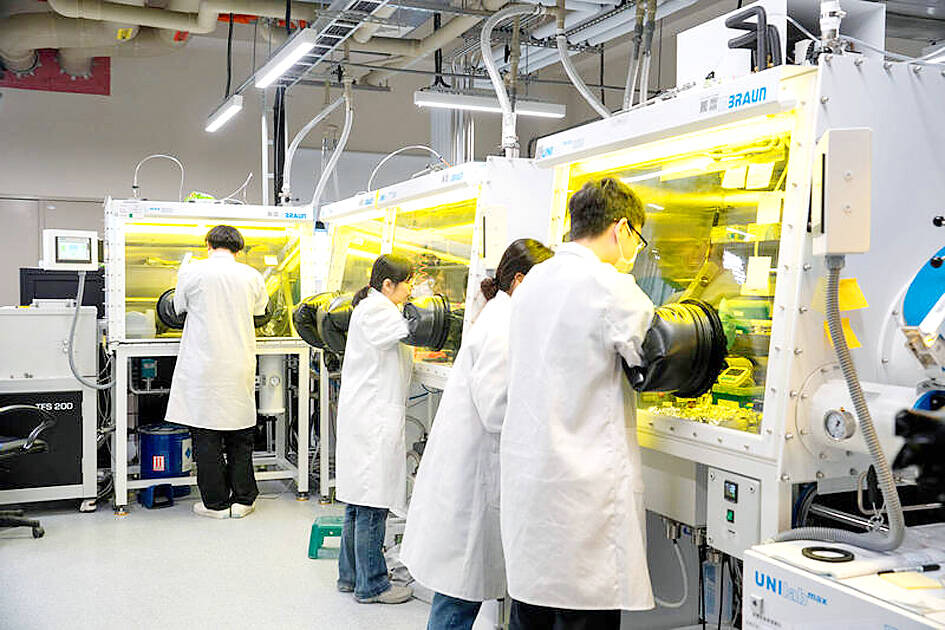
Photo courtesy of Academia Sinica
However, perovskite films can be combined with silicon solar cells to form stacked perovskite/silicon solar cells to improve light-to-electricity conversion efficiency, it said.
The institute formed a research group to develop perovskite/silicon tandem solar cells after Academia Sinica President James Liao (廖俊智) finalized the decision, with its own researchers being joined by those from National Cheng Kung University, National Tsing Hua University and Ming Chi University of Technology, it said.
The research team succeeded in creating perovskite/silicon tandem solar cells in two years, boosting the light-electricity conversion efficiency to more than 31 percent, Liao said.
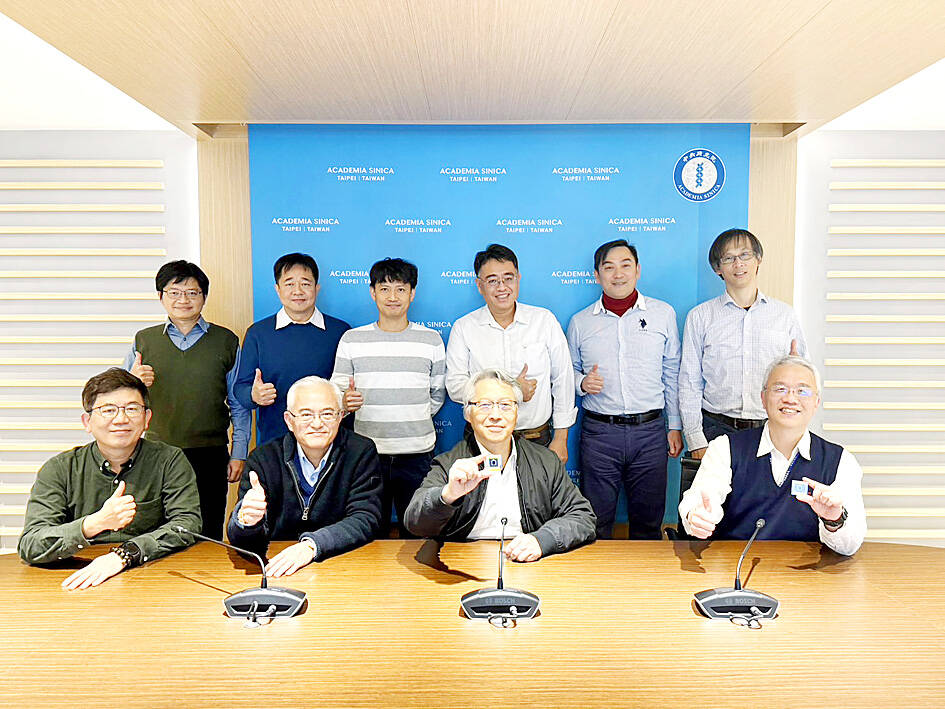
Photo courtesy fo the Academia Sinica via CNA
“The efficiency is more than 30 percent higher than solar cell products currently on the market. Compared with the solar power generation devices deployed in the early years, the efficiency has increased by nearly 50 percent. Power generation can be increased without increasing the properties required to develop solar energy,” he said.
Silicon solar cell modules can only absorb part of the wavelength of sunlight, resulting in limited conversion efficiency. Tandem solar cells use the upper layer of perovskite to absorb photons that cannot be absorbed by silicon crystal, and the remaining photons are absorbed by the lower layer of silicon crystal, thereby increasing the conversion efficiency, the institute said.
The research team has broken through several key connection layer technologies, successfully laminated perovskite films on silicon cells and reduced interface losses, thus completing the production of small-area two-terminal cell components. The light-electricity conversion efficiency has reached 31.5 percent, the institute said.
There is sufficient supply of materials to produce perovskite/silicon solar cells, which can be manufactured at lower costs, run efficiently and are recyclable, the team said.
“The result shows that Taiwan has the ability to produce perovskite/silicon tandem solar cells, which also have a high potential to be commercialized,” the team said.
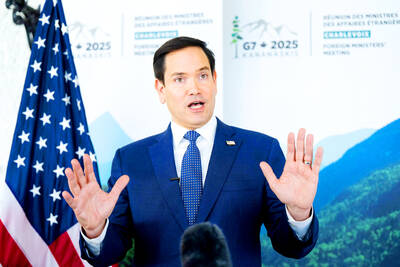
‘CROWN JEWEL’: Washington ‘can delay and deter’ Chinese President Xi Jinping’s plans for Taiwan, but it is ‘a very delicate situation there,’ the secretary of state said US President Donald Trump is opposed to any change to Taiwan’s “status quo” by force or extortion and would maintain that policy, US Secretary of State Marco Rubio told the Hugh Hewitt Show host on Wednesday. The US’ policy is to maintain Taiwan’s “status quo” and to oppose any changes in the situation by force or extortion, Rubio said. Hewitt asked Rubio about the significance of Trump earlier this month speaking with Taiwan Semiconductor Manufacturing Co (台積電) chairman C.C. Wei (魏哲家) at the White House, a meeting that Hewitt described as a “big deal.” Asked whether the meeting was an indication of the
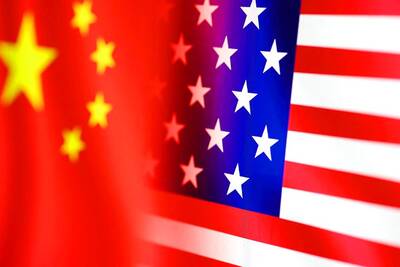
‘RELATIVELY STRONG LANGUAGE’: An expert said the state department has not softened its language on China and was ‘probably a little more Taiwan supportive’ China’s latest drills near Taiwan on Monday were “brazen and irresponsible threats,” a US Department of State spokesperson said on Tuesday, while reiterating Washington’s decades-long support of Taipei. “China cannot credibly claim to be a ‘force for stability in a turbulent world’ while issuing brazen and irresponsible threats toward Taiwan,” the unnamed spokesperson said in an e-mailed response to media queries. Washington’s enduring commitment to Taiwan will continue as it has for 45 years and the US “will continue to support Taiwan in the face of China’s military, economic, informational and diplomatic pressure campaign,” the e-mail said. “Alongside our international partners, we firmly
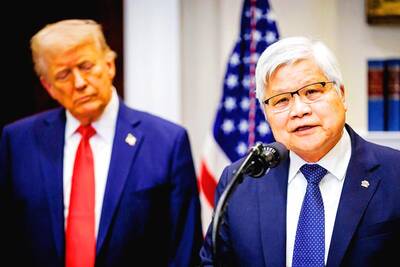
KAOHSIUNG CEREMONY: The contract chipmaker is planning to build 5 fabs in the southern city to gradually expand its 2-nanometer chip capacity Taiwan Semiconductor Manufacturing Co (TSMC, 台積電), the world’s biggest contract chipmaker, yesterday confirmed that it plans to hold a ceremony on March 31 to unveil a capacity expansion plan for its most advanced 2-nanometer chips in Kaohsiung, demonstrating its commitment to further investment at home. The ceremony is to be hosted by TSMC cochief operating officer Y.P. Chyn (秦永沛). It did not disclose whether Premier Cho Jung-tai (卓榮泰) and high-ranking government officials would attend the ceremony. More details are to be released next week, it said. The chipmaker’s latest move came after its announcement earlier this month of an additional US$100 billion

Authorities yesterday elaborated on the rules governing Employment Gold Cards after a US cardholder was barred from entering Taiwan for six years after working without a permit during a 2023 visit. American YouTuber LeLe Farley was barred after already being approved for an Employment Gold Card, he said in a video published on his channel on Saturday. Farley, who has more than 420,000 subscribers on his YouTube channel, was approved for his Gold Card last month, but was told at a check-in counter at the Los Angeles International Airport that he could not enter Taiwan. That was because he previously participated in two